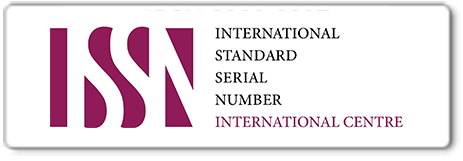The Problem of Scarcity Within the Framework of Islamic Economics
DOI:
https://doi.org/10.59086/ijest.v1i3.130Keywords:
Scarcity, Problem Economy, Economy Islam, ConventionalAbstract
References
ABATASA Gather and Share. "Islamic Concept of Goods". Official Site limit. http://alimita.com/Konsep Islam about-htm (November 24 2014).
al-Maliki, Abdurrahman. Political Economy Islam. Bogor: Al-Azhar press, 2009.
al-Marigi, Ahmad Mustafa. Translation of Tafsir Al-Marigi. Color II; Semarang: Toha son, 1992
al-Maududi, Abu A'la. The Basics of Economics in Islam and Various Systems time Now. Paint. II; Bandung: PT. Alma'arif, 1984.
Peace, God Kamal Faqih. Tafsir Nurul Qur'an, A Simple Tafsir Towards Light al-Qur'an, Vol I. Paint. I; Jakarta: al-Huda, 2003.
Amrullah, Abdulmalik Abdulkarim. Tafsir al-Azhar Volumes 13 and 14. Cet. II; Jakarta: an-Nabhani, Taqiuddin. Nidhaam al-Iqtishaadi fii al-Islam. Transl. Hafiz Abd. Rahman, Islamic Economic System, Mu'tamadah Edition. Paint. I; Jakarta: Hizb ut Tahrir Indonesia, 2010.
an-Nabhani, Taqiuddin. Nizham Al-Islam. Transl. Abu Amin, Rules of Living in Islam Edition Mu'tamadah. Paint VII; Jakarta: Hizbut Tharir Indonesia, 2011.
Ana. Summary Theory UN Economy SENIOR HIGH SCHOOL 2012. http://sir- anang.blogspot.com.pdf (November 5 2014).
Ancorez Community "Quality of Services/Services in Islamic Perspective". Site Official Ancorez. http://www.ancorez.com/Quality of Service/Internal Services Islamic Perspective - The dark anco.htm (27 November 2014).
Antonio, Muhammad Shafi'i. Islamic Banking from Theory to Practice. cet. I; Jakarta: Echo Human, 2001.
Bisri, Abdir and Munawwir A. Fatah. Al-Bisri Dictionary Indonesian-Arabic Arab- Indonesia. cet. I; Surabaya: Progressive Puataka, 1999.
Deliarnov. The Development of Economic Thought Revised Edition. Jakarta: PT. King Grafindo Homeland, 2005.
Ministry of Religion of the Republic of Indonesia. Al-Quran Tajweed and Translation. cet. V; Bandung: Diponegoro, 2013.
Department Education National. Dictionary Big Language Indonesia, Edition III. cet.
III; Jakarta: Hall References, 2005.
Two, Michael. Economic Philosophy, Efforts to Find Common Welfare. cet. V; Yogyakarta: Libraries Philosophy, 2012.
Qutb, Sayyid. Interpretation Fi Zhilalil Qur'an (Below the shade of the Qur'an), Volume I. cet.
VII; Jakarta: Echo Human, 2008.
Rahardja, Prathama and Mandala Manurung. Introduction Knowledge Economy (Microeconomics and Macroeconomics), Eisi III. Jakarta: faculty of Economics University Indonesia, 2008.
Saefiddin, AM. Grounding Economy Islam. cet. I; Jakarta: PT. PPA consultants, 2011.
Shihab, M. Quraish. Tafsir al-Misbah: Message, Impression and Harmony of the Qur'an, Vol. 1. cet. I; Jakarta: Lantern Heart, 2000.
Shihab, M. Quraish. Tafsir al-Misbah: Message, Impression and Harmony of the Qur'an, Vol. 2. cet. I; Jakarta: Lantern Heart, 2000.
Shihab, M. Quraish. Tafsir al-Misbah: Message, Impression and Harmony of the Qur'an, Vol. 14. cet. I; Jakarta: Lantern Heart, 2003.
SIGHT “Service Quality Based on Islamic Principles, Elaboration of Principles CHARTER". Site Official SIGHT. http://www.sight/Quality Service based on Islamic Perspective, CARTERSIGHT.htm. Principle Description (27 November 2014)
satyanto, Anang Bi. Goods Free and Goods Economy. http://www.ilmusiswaku.worpress.com/2012 (7 October 2014).
Sukirno, Sadono. Introduction to Microeconomics, Edition III. cet. XX; Jakarta: PT. King Grafindo Homeland, 2004.
Shaykh, Abdullah bin Muhammad Alu. Tafsir Ibn Kathir, Volume III. cet. I; Jakarta: References Priest ash-Shafi'i, 2009.
A sh-Sadr, Muhammad Baqir. Islamic Economics Master Book. cet. I; Jakarta: Zahra, 2008.
Triono, Dwi Condro. Hamfara School of Islamic Economics, Volume I Philosophy of Economics Islam. cet. II; Bantul: Irtikaz, 2011.
Yunus, Mahmud. Tafsir Al-Qur'an Prof. Dr. H. Mahmud Yunus, Volume I. Jakarta: Hadikarya Great, 1973.
Yunus, Mahmud. Dictionary Arab – Indonesia. Ciputat: Mahmud Yunus Wa Dzurriyyah, 2010
Downloads
Published
How to Cite
Issue
Section
License
Copyright (c) 2022 Reza Febrian, Shabri Abd. Majid

This work is licensed under a Creative Commons Attribution 4.0 International License.
International Journal Of Economics Social And Technology under the terms of a Creative Commons Attribution 4.0 International License / CC BY 4.0 This license permits anyone to copy and redistribute this material in any form or format, compose, modify, and make derivative works of this material for any purpose, including commercial purposes, so long as they include credit to the Author of the original work.
Most read articles by the same author(s)
- Arief Hidayat Tumanggor, Muhammad Salman, Reza Febrian, Sugianto Sugianto, Determinants of Muslim Family Financial Planning , International Journal Of Economics Social And Technology (IJEST): Vol. 1 No. 3 (2022): 2022, September


















